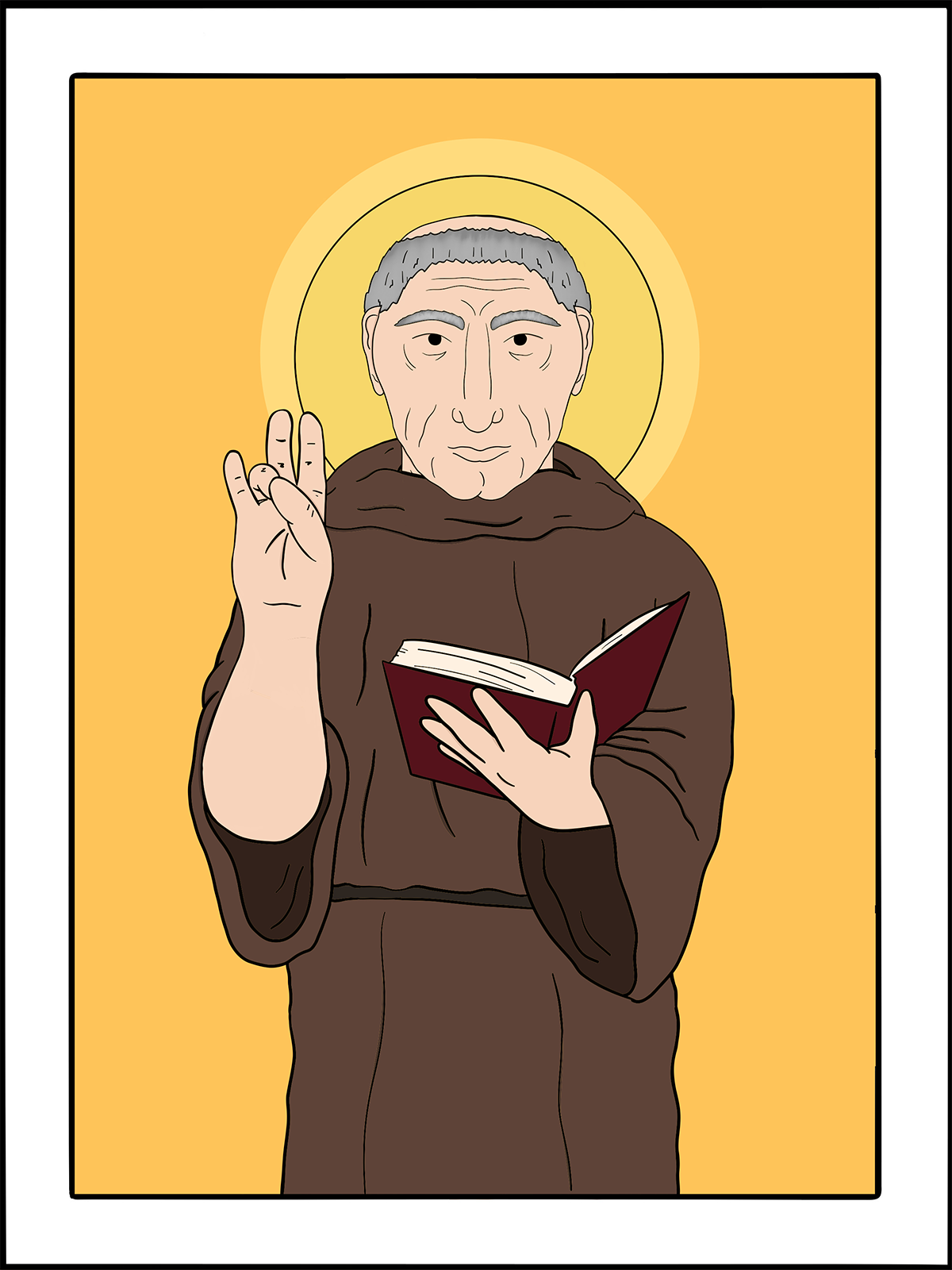
May 20
Alcuin of York
Deacon, 804
art by Rev. Kirsten Kohr of Geneva, Ohio Almighty God, who raised up your servant Alcuin as a beacon of learning: Shine in our hearts, we pray, that we may also show forth your praise in our own generation, for you have called us out of darkness and into your marvelous light; through Jesus Christ our Lord, who lives and reigns with you and the Holy Spirit, one God, now and for ever. Amen.
Alcuin was born about 730 near York, into a noble family related to Willibrord, the first missionary to the Netherlands. He was educated at the cathedral school in York under Archbishop Egbert, a pupil of Bede. He thus inherited the best traditions of learning and zeal of the early English church.
After ordination as a deacon in 770, he became head of the York school. It was not uncommon for theologians and intellectuals in the early and medieval church to be ordained as deacons, teaching and scholarship being understood by the church as a diaconal ministry as well as care for the poor and the needy.
Following a meeting in 781 with the Emperor Charlemagne in Pavia (Italy), Alcuin was persuaded to become the Emperor’s “prime minister,” with special responsibility for the revival of education and learning in the Frankish dominions. He was named Abbot of Tours in 796, where he died on May 19, 804, and was buried in the church of St. Martin.
Alcuin was a man of vast learning, personal charm, and integrity of character. In his direction of Charlemagne’s Palace School at Aachen, he was chiefly responsible for the preservation of the classical heritage of Western civilization. Schools were revived in cathedrals and monasteries, and manuscripts of both pagan and Christian writings of antiquity were collated and copied.
Under the authority of Charlemagne, the liturgy was reformed, and service books gathered from Rome were edited and adapted. To this work we owe the preservation of many of the collects that have come down to us, including the Collect for Purity at the beginning of the Holy Eucharist.
Excerpted directly from “Lesser Feasts and Fasts 2022,” p. 236-237.

